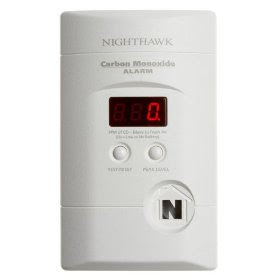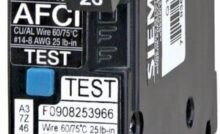Plug-In Carbon Monoxide Detectors


Carbon monoxide is colorless and odorless which means you can see it or smell it. They call carbon monoxide the silent killer for a very good reason. High levels of carbon monoxide can kill a person in just a few minutes.
Knowing the symptoms of carbon monoxide poisoning is crucial to getting proper medical help. High levels of carbon monoxide can have the following symptoms: severe headaches, become dizzy, mentally confused, nauseated, or faint. If you feel any of these symptoms you should get outside in fresh air and call for help.
Unfortunately most people who die from carbon monoxide poisoning don’t even know what has happened to them. Typically victims are asleep and unaware of the symptoms and die before they can seek fresh air and medical help.
That’s why installing carbon monoxide detectors in your home is so important. Today’s new homes are typically pre-wired for carbon monoxide and smoke detectors to meet state and local fire codes. However, millions of older homes around the Country have no such luxury. That’s why I think it’s so important to tell you about plug-in carbon monoxide detectors.
We used plug-in carbon monoxide detectors in our first home and several apartments we rented. You can buy the Kidde KN-COPP-3 Nighthawk Plug-In Carbon Monoxide Alarm with Battery Backup and Digital Display from Amazon for just over $40. This particular CO monitor comes with a battery back-up for added protection during power outages. If you don’t have a CO detector in your home please go out and buy one before the heating season is on full swing.
Recent Posts
Framing Stick Nailer vs Coil Nailer
Which is Better a Stick Nailer or Coil Nailer? Framers have many choices in nailers…
How Many Roofing Nails Per Square of Shingles
Estimating How Many Nails for a New Roof When it comes to estimating materials for…
Composite / PVC Decking – Layout Tips & Advice
Composite / PVC Decking Layout Tips and Advice Composite and PVC decking have really changed…
Benefits of an ERV System (Energy Recovery Ventilator)
Benefits of ERV Systems (Energy Recovery Ventilator) If you're building a new home or doing…
Vermiculite Attic Insulation Abatement
Vermiculite Attic Insulation If your home was built before 1990 there is a chance it…
Nuisance Tripping of AFCI (Arc Fault) Circuit Breakers
Arc Fault (AFCI) Circuit Breakers Tripping Often An arc-fault circuit interrupter (AFCI) or arc-fault detection…
